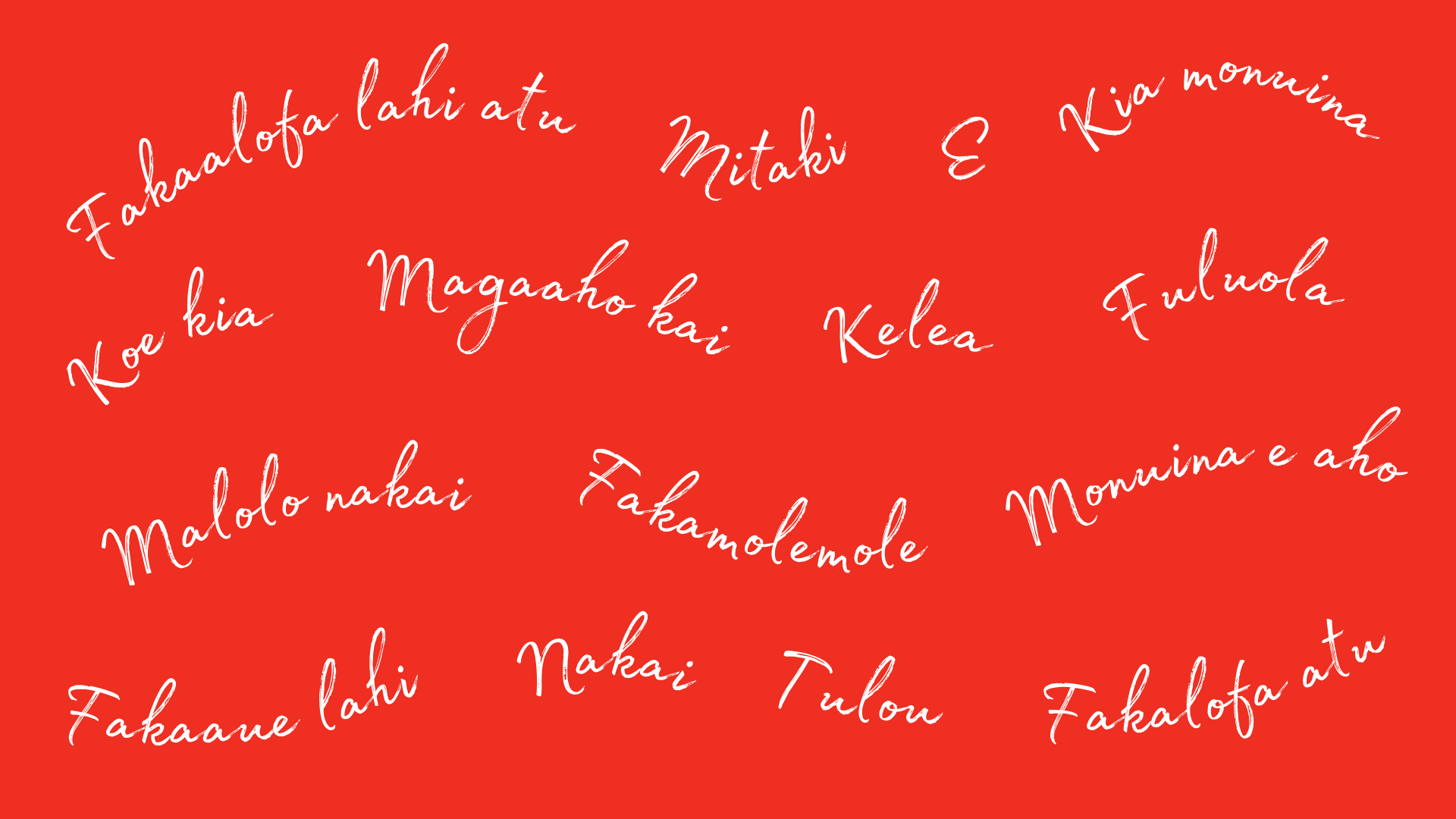15 Essential Niuean Words for Your Trip to Niue
A Beginner’s Guide to the Niuean Language: Vagahau Niue
Planning a visit to Niue? While the island's incredible scenery and warm hospitality will captivate you, learning about the local language can make your experience even more special.
In this guide, we’ll introduce you to some key Niuean words and phrases, giving you a glimpse into the language’s origins and helping you impress some of the locals on your next visit. By the end, you’ll feel more confident and ready to dive into your Niue adventure!
What is Niuean?
Niuean, also known as Vagahau Niue, is a Polynesian language that belongs to the Malayo-Polynesian subgroup of the Austronesian languages. It’s closely related to other Polynesian languages like Tongan, Samoan, and Hawaiian.
Vagahau Niue has two main dialects: the older Motu dialect, commonly spoken in the north, and the Tafiti dialect, spoken in the south, with the differences mainly in vocabulary and word forms.
While Vagahau Niue is the island's native language, English is the second official language. Most Niuean’s grow up bilingual so English speakers don't need to worry about a language barrier when visiting!

How many people speak Niuean?
Believe it or not, there are more speakers of Vagahau Niue off-island, with over 30,000 Niuean’s residing in New Zealand. With only 1,700 people living on the island and few than 11% of Niuean’s abroad speaking Vagahau Niue, it's estimated that there are only around 7,000 speakers of the language in the world!
This limited number of speakers has led to Vagahau Niue being classified as "Definitely Endangered" by the UNESCO Atlas of the World’s Languages in Danger, making celebrations like Niue Language Week even more important.
Niuean Language Basics and Pronunciations
Vagahau Niue has relatively straightforward grammar and a vocabulary similar to other Polynesian languages. The alphabet only uses 16 letters in total; five vowels (a, e, i, o, u) and eleven consonants (f, g, h, k, l, m, n, p, s, t, v). Words follows a simple consonant-vowel pattern, which gives them a melodic, song-like quality. This natural flow makes Vagahau Niue pleasant to listen to and relatively easy to pronounce once you're familiar with the rules.
Mastering Niuean Vowels
Niuean vowels are a little different from what you might be used to in English, but they’re super easy to learn. Here’s a quick guide to help you nail the sounds:
A is pronounced like the a sound in "far"
E is pronounced like the e sound in "egg"
I is pronounced like the ee sound in "machine"
O is pronounced like the o sound in "sort"
U is pronounced like the oo sound in "rule"
With these simple vowel sounds, you'll be speaking Niuean in no time!
Understanding Niuean Consonants
Niuean uses 11 consonants: f, g, h, k, l, m, n, p, s, t, and v. Most are pronounced just like in English, but there are a couple of exceptions that might catch you off guard.
The first is the letter ‘g’, which is pronounced like ‘ng’ in sing. For example, the word Uga (the delicious coconut crab) is actually pronounced "u-ng-a"—who would’ve guessed?
The second difference is the letter ‘t’. When followed by ‘i’ or ‘e’, it’s often pronounced with an s sound. So, tele (kick) is pronounced "se-le."
Getting familiar with these little quirks will make it easier to pick up key phrases and feel more confident speaking Vagahau Niue!
Niuean Words and Phrases
Ready to learn some words? Think of this as your mini-dictionary to get started with the basics of Vagahau Niue. Learning these key words and phrases will not only help you navigate the island but also show your interest in Niuean culture, opening up new experiences and connections.
Here are some useful examples to have up your sleeve:
- Hello - Fakaalofa lahi atu
- Hi - Fakalofa atu
- Please - Fakamolemole
- Thank you - Fakaaue lahi
- Goodbye [1 person] - Koe kia
- Farewell - Kia monuina
- Yes - E
- No - Nakai
- Have a great day - Monuina e aho
- How are you - Malolo nakai
- Good - Mitaki
- Bad - Kelea
- Sorry - Tulou
- Food time - Magaaho kai
- Beautiful - Fuluola
For the eager beavers out there, there are plenty of great resources can help you expand your Niuean vocabulary! You can practice pronunciation with the Fakaako e Vagahau Niue app, which is a fun and interactive way to learn, and was created to help preserve the language.

Ready to start your Vagahau Niue journey?
Niuean is a unique and beautiful language, deeply connected to the culture and identity of Niue. Learning even a few words can open doors to new experiences and offer a deeper understanding of the island and its people.
Though Niuean may sound a bit different compared to other South Pacific languages, it’s straightforward to learn, especially with a little practice. The written language is phonetic, so once you understand the basics, you’ll find it easier to pick up.
Don’t be afraid to give it a go—your efforts will be greatly appreciated by the locals whilst on your Niuean holiday. Start your journey today and discover the richness of the Niuean language!
